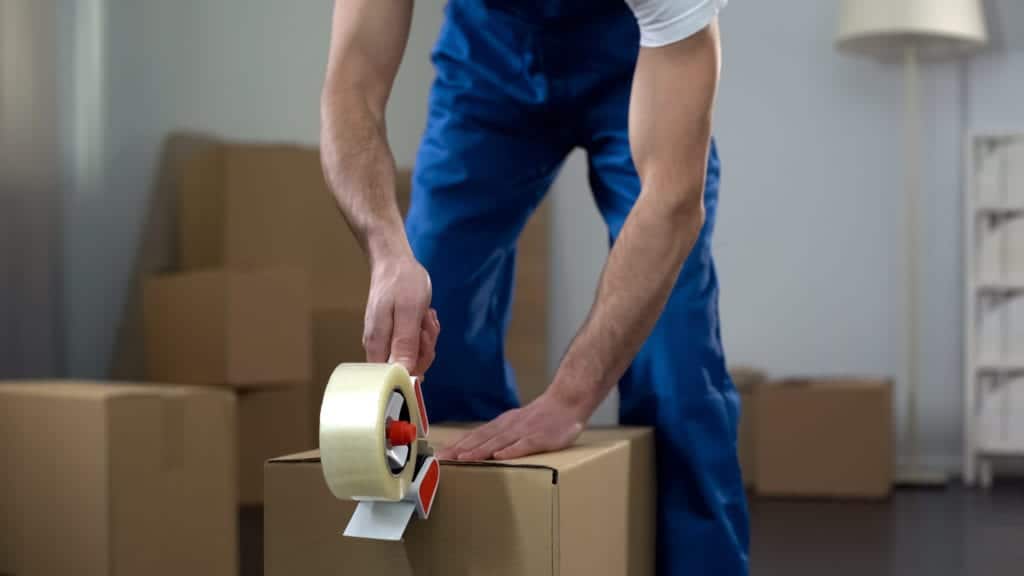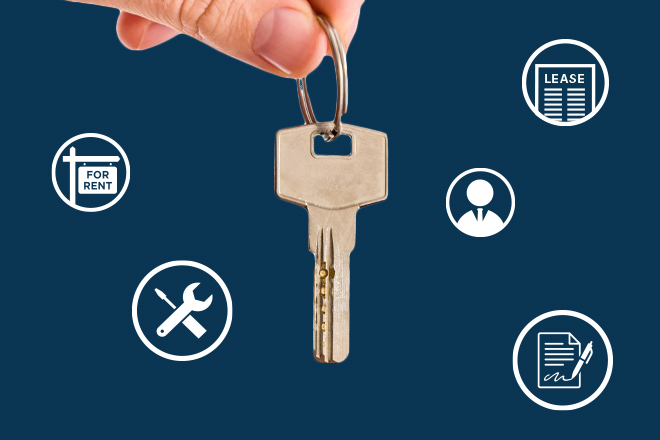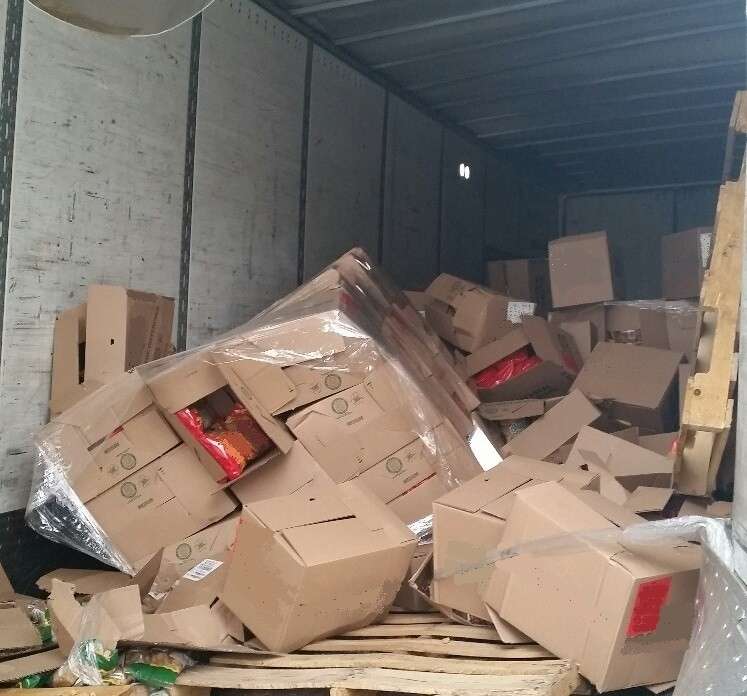Pros and Cons of Living & Moving Closer to Family
March 8, 2023
Family is important, and it’s almost difficult to spend time with each other regularly while you live apart. Although the gap has been dimmed by phones and video calls, it’s not the same as being able to see your loved ones physically. You should thoroughly analyze every aspect of the decision whether you are considering moving closer to your family, or to your grandchildren. Because only the positives are easy to see, without even noticing the negatives.
And there is a down for every up, which is why comparing and contrasting what your future life could look like if you decide to make the move is a good idea.
If the area you’re heading to doesn’t have stuff that your current place of residence does, so that can be a major help for you. Whether it’s more social care to support you with your needs, a more vibrant social scene, or simply an economy where your money goes beyond where you live now. You need to carefully consider where you are going, and strive to find good aspects of it that will make you feel like a member of the culture.
If the majority of your family has already taken up residence in a certain area, then the town must be taken over on its own terms. That means that when it comes to budgets, places, and other options, you have minimal choices that are often open to you when considering relocating. You may not be able to find a new abode that gives you everything you need, depending on your finances and your personal needs.
Also Read : Tips for Long-Distance Moving with Kids
You’ll have a support network in the form of your family even if you are unaccustomed to your new locale. They will help you integrate, send you the grand tour, and keep you up-to-date on what’s all about your new venue. This is a huge benefit, particularly for senior citizens who might be hesitant to ask for support or to start a new social network from scratch.
Also Read : Seniors Move: 5 Moving Tips and Advice
Just because you are a parent or a grandparent doesn’t mean that you don’t have to take care of your own life. You’ve got passions and pastimes, and maybe you’re still focusing on your future. Just because your children have grown up and had children of their own in certain situations, doesn’t mean that you still don’t have things to do. However, if you live close to your family, you may feel compelled to place it on the side of the road so that you can spend more time with your loved ones.
If they live reasonably close together, even on-the-go families will arrange a time to have brunch or catch a weekend flick. It also ensures that on holidays, birthdays, and other big activities such as recitals, plays, etc. that grandkids appear to have daily, you won’t miss out. For many older parents, that is a good reason for trying to close the distance between themselves and the rest of their families.
It will cost you time, resources, and energy to move even if you have a small house of belongings, and you’re traveling a fairly short distance. Make sure that a reputable moving company assists with your relocation and has a budget. Before you decide to travel, those costs should be measured and their effect pondered. And even though your final destination can be afforded; you want to be closer to your family, and there are opportunities there, the cost of moving will be enough to shackle you in place.
Wowmover will assist you every step of the way and offer several different service levels to match every budget if you are prepared to make the move closer to your kids or grandkids.
Related Articles:






How to Stay Focus When Moving: Reducing the number of things you need to pack, sort, transport, organize and unpack is one of the easiest ways to simplify your move to a new home. Take a close look at your possessions when you walk into a room from your current home and make a list of what you want to get rid of and what you want to keep, as well as what you should keep.
One of the most important tasks on your cross-border checklist is finding a removal company. Add the items you carry to your packing list and avoid buying such items if you need to go to the store before the actual move – the date. You can also try to consume all your food before the moving date, but consider the possibility that foods such as meat, dairy products, eggs, milk, cheese, and other dairy products will expire soon.
If you want to pay for the move, you should do some research on different removal companies in your area and contact them directly. Get at least five relocation offers and request quotes from a list of removals companies to help you make the move smoothly. Get help from family and friends if you need it, but schedule your move as early as possible. If you are traveling a long distance, you may have to travel long distances, so plan ahead and plan ahead.
You should also consider booking a removal van with a local rental company, or you can also get help with moving and have someone assemble your furniture if needed. It is a great idea to pack your moving goods in advance, but if you have not paid attention to free removals, you might want to buy moving cartons, markers, and packing tape.
If you plan ahead, you will enjoy your first night in your new home, but if you are expanding into a larger space, you will need to order some basic things in advance when you move to the first place.

Once you have disposed of your belongings well, the packaging aspect is much simpler. Make a checklist for movable packaging and follow it carefully, and by wrapping uptime, you save yourself the chaos that comes with a busy day.
If you are working your way through the house and getting your most important items such as toiletries and your current wardrobe, the first thing you should do is pack your necessary kitchen utensils. Other things you don’t need a few days after your move are the last things you need to pack, such as a pair of shoes, a bag of clothes and a pair of socks.
In order to find your way to your new home, you should consider taking a day off after moving, even if you move at the weekend. If you plan to move during the week, make sure you get some time off from work. In this case, it means that you end your service with your current utility company and set up services with a new provider in your new home.
Related: Different Types of Moving Services and Moving Companies
You will certainly want a copy of your utility bill as well as your phone number and address when you move house. Tell the utility companies that you are moving by calling or by e-mail, phone, and fax. Add this core to your cross-border checklist and make sure you tick all the boxes on it and enter your address change to make sure you don’t miss an email. If you miss important mail during your move, problems may arise, especially if you need to add it to a cross-border checklist.
You must also ensure that you change your address at least once in your cross-border checklist before you move. This can happen in a few minutes, which will only take a few hours or even an hour or two. If you have the opportunity, we recommend that you carry out basic cleaning on the day of your move.
Once your belongings are moved in, your new home will be much easier to clean, and if you may have a spare key, you will know that you have your key when you move into the new house. Make sure you order a replacement lock before you move in so that you can replace the lock when you move into your newest home.
This will help you save hundreds or even thousands of dollars depending on the distance to the train. At the end of the year, you may be able to deduct your moving costs from tax in some cases, but make sure you keep all your documents during the move. The removal company you hire and the removal company can be deducted from the tax and at the same time the cost of their services.

You successfully moved. Don’t open your champagne yet. It doesn’t mean there is nothing to do. When everything was moved to your new location, there were still a lot of things to do before you could relax completely. There are important things to do after moving.
Check Appliances if it is all working. Make sure nothing was broken or damaged. If there are items that got broke or damaged file a claim immediately before your insurance ends. Also important to check if your electricities are up and running.
Keep all your documents and receipt organized and safe in one folder. You need these documents to file a claim and you’re able to get your tax return.
Now that you’re already moved, it is the perfect time to decorate and arrange your house from scratch. It is a great opportunity to let your interior skills in you. Feel free to decorate your house the way you wanted.
Ask locals or search online what are the best school and possibly the nearest schools for your children. Register them as soon as possible so it will be easier for them to settle in and adapt to your new location.
Find your local precinct to “register to vote”. It is important for a new resident to update all pieces of information with your new address. Make sure to get updated and connected to your municipality.
Search for the nearest hospital to know who to call when an emergency occurs. This will speed up the process such as calamity hits.
Update your address to your online or offline subscription such as online shopping or local newspaper. You don’t want your orders to be sent to your old location.
Get insurance for your household, healthcare, and cars. Make sure you’ll get covered by the company policy at your new address.
Moving to a new house means you also need to register your cars at your current location. Go to the nearest local DMV office then transfer your driver’s license.
If you are completely unfamiliar with your location and environment, you need a bit of guidance from your neighbors. It will take time to familiarize a new state, new, city, and new neighborhood. Making new friends is an exciting part.
If you need peace of mind, provide for your pet’s needs. It is strange for pets to move to different locations due to territorial issues. Clean your house before they sniff pets trace who may live in your house before. (Also, Read: Traveling with Animals Dos and Donts )
Those are some important things to do after moving. Follow this plan and this checklist for a better and more organized transition.
Related Articles:






Moving is an enormous pressure-straight up there with the truly downright terrible, like separation and employment misfortune. So, even in the best conditions, household pressures are intense and everybody’s nerves are out there contending to be the last one stepped on.
In case you’re similar to 99% of the population, what keeps you up around evening time is the actual move, a week or months-long cycle that takes steps to expend all your wakings minute and since you can’t rest at any rate there are a lot of them. It’s mind-boggling for even the most composed and clutter-free family; you must sort and cleanse and wrap and get boxes and make sense of how to pack the boxes and dismantle furniture and afterward get everything from point to point.
This is where an expert, the full-service moving company can take over and let you focus on your new house, new employment position, new schools, and new life. Regardless of whether you’re moving over the area or cross-country, each and everything in your old house must be packed up or tossed out. The vast majority focus on the aspect of the move that includes loading the trucks and lumbering down the roadway. An experienced team of expert full-service movers can assist you with smooth and simple cruising right up to your new front door.
To begin with, you must find the right full-service moving company. Ask your companions or your real estate agent for referrals, and meet a couple to find an ideal choice for you. If you’ve never recruited movers before,
Many individuals need to pack really significant or delicate items themselves, and most packers are okay with that. In any case, the professionals really know how to wrap delicate items so there’s less possibility of breakage, and to put those things in boxes so they’re secure but not very tight
Tip: stringing packing paper through the handle of mug or cup and stuffing paper into it decreases the possibility of breakage.
Once more, most movers will work with you on services. Notwithstanding, you may pay more for piecemealing the services. In the event that you think you’ll spare to a great extent purchasing your own packing supplies, or dismantling furniture, odds are great that you won’t.
At the point when you factor in that you’ll pay higher expenses at moving supply or large box stores and have no clue about the amount you’ll really require, and will make a lot of trips, letting the expert packers do it is a better choice.
Ask to see a current copy of their commercial policy.

Since you’ve recruited the ideal movers, you’re on their timetable for packing and moving you can mark that off your daily agenda and proceed onward to the details of starting life in another house.
If your move is local, you’re fortunate in that you can keep the stray pieces of your life the same – same schools, cleaners, gym center, and so on. In case you’re similar to many people, your move isn’t local or moving to another state and you must make entirely different information or database for life; fortunately, without the move pressure looming over all your wakings moment, you can get a head start on all the things that transform another town into an old neighborhood.
Also Read : Moving Fears : How to Overcome Them!
This is the ideal opportunity to accumulate every one of your records that are scattered all over and consolidate them into an envelope, either computerized or a printed copy. You’ll require birth certificates, social security numbers, medical and vaccination records, driver’s permit, international IDs – sooner or later during the move and settling you’ll have to get your hands on everything. Changes in some state laws require two types of government IDs, etc.
Your real estate agent should be working with you to guarantee every one of your utilities are turned on and working when you get to your new house, yet you’re the person who needs to open the accounts and timetable service. You have the nuts and bolts – power, water, and gas- – where there’s one supplier and that is it. Most towns have various alternatives for communications, and if your present supplier doesn’t support your new location you’ll need to find another one.
In the event that your new neighborhood has a Home Owners Association, they’ll have all the important data on things like trash pickup, mail delivery, and lawn maintenance guidelines. If you deal with your own yard, currently may be a decent and ideal opportunity to overhaul the cutter and blower, if not, make an inquiry for decent assistance.
Approach your primary care physician for referrals in your new region – there’s normally a trusted pal from medical school they can suggest. As endless practices presently are part of large corporate networks you might be able to make an easy transition to a new group; if not your insurance carrier can guide you to in-network practices.
It’s probably going to be all in or all out to find the correct pediatricians, internists, and orthodontists, yet be patient and you’ll find a decent match. Remember to transfer prescriptions; odds are acceptable that you’ll simply need to change to the new area and stay with the same company.
If you have children in school, setting everything straight into their new environment as easily as conceivable is critical. Check with the local Board of Education to affirm the records you have to enroll in the system. School areas have various arrangements with respect to attendance; some have inflexible limits and others are more liquid.
In case you’re keen on magnet schools, you’ll need those rules to enlist for special programs. For confirmation of residence, you’ll need a duplicate copy of your deed, home loan, or rent to affirm your address, and typically a service bill as an optional source. Likewise, make sure to get suitable vaccination records and records from past schools.
As should be obvious, simply rearranging your life for a move is an all-day work or a full-time job, so for what reason would you assume the weight of the physical move when you can have a full-service moving company deal with that for you? Find the right professionals for your turn so you can set aside a few minutes for the significant things.
Related Articles:






How to Downsize into a Smaller House?: Regardless of whether you’re moving from a palatial or a castle-like estate to a midtown condo or you’re moving in with a significant other, cutting back or downsizing is altogether.
Moving from an enormous home brimming with your stuff to a little space can be dubious, and keeping in mind that it’s anything but difficult to say that it is simply disposed of your additional stuff, doing it is a lot harder.
Here are the means by which to make the change as smooth as could reasonably be expected.
In case you’re moving into a little space with another person and consolidating household units, this progression is considerably significant, for you, but for the individual you’re moving in with too. go through your inventories together.
Be savage with your rundowns, as well—it’s regularly said that the things you own grow to occupy the space you live in, however the opposite, that they contract to fit pleasantly, never occurs.
Before you do anything—before you even move and know how much space you need to move into, the principal activity is to take a close inventory of your effects. Ask yourself, If all that you possessed was lost in a fire-related accident, what might you replace?
Assess the things that are really critical to you, and the things that you could live without, or could really replace or scale down alongside your living space.
Preferably, you’ll make three records: Must-haves, can live without, and things I could replace, and go from that point. Additionally, taking full stock of your things is an extraordinary method to make a point by making a detailed home inventory, for that tenant’s or mortgage holder’s insurance.
We referenced that in case you’re moving into a little space with somebody, ensuring you go over your inventories together is fundamental. The exact opposite thing you need to do when attempting to join two household units is to discover that you’ve both brought two full arrangements of dishes, flatware, glasses, or more regrettable, enormous things like seats, lounge chairs, work areas, etc.
Also Read: 5 Moving Risks You Should Be Aware Of When Moving To New Places
This is the place it’s significant to have a home inventory close by before you move, and that you both sit down and settle on choices on the things you need to keep, who brings the dishes and who brings the glasses, who brings the bed and who brings the seats.
The following stage is to leave behind those things that you don’t need and sell them for money. The more cash you make, the more you’ll have the option to purchase things that are size suitable for your new home or set aside the cash and make the most of your new life in your little space.
Additionally, consider a portion of the things you own that are simply “insurance” items. For instance, additional sleeping mattress in the carport, or the futon in the storm cellar—those things you save for no reason other than the chance of something you do utilize each day breaking.
Those are the prime possibility to sell: The things you’re keeping are just devaluing in esteem. You’ll help yourself out by reserving the cash you get from them in a bank account and purchasing a lounge chair or a futon in the event that you ever need one as opposed to clutching an old, smelly one in the event of some unforeseen issue.
At last, whatever you do, in the event that you can’t sell it, don’t spare a moment to give it to a noble cause or to a charity. On the off chance that you can’t utilize it and it’s in acceptable condition, another person will, and they’ll welcome it.
Scaling down doesn’t need to be a problem, it might seem like it, and leaving behind the things you own can be emotional yet attempt to consider the existence you’ll get in return for the messiness you’re parting with.
Related Articles:






After getting married More and more couples are Moving together with their spouse. This way, it feels like an exciting next step and a new beginning for you and your partner to start living together as a family. If you’re planning to move in with your partner soon, here’s what to expect and how to handle the transition and the start of your life together smoothly.
Moving in with your spouse can make or break a couple’s relationship. When you’re planning to live together, you’ll want to be aware of these handy tips that can make a relationship run even more smoothly.
It seems meaningless, but when you spend a lot of time with your partner, you might end up arguing over the most insignificant stuff. According to a survey, nearly 30% of all married couples complain about clutter, with more than half of these couples blaming it on their spouse’s clothing. Keep in mind that your loved one is unlikely to appreciate your mess. Her or his reactions to the things around you would be different from yours, and this may be a source of conflict unless your couple makes peace with it.
Tip: discuss storage options before you move into your new house!
Living in an apartment can be cramped for two people, so think about how you can maximize your storage room before you move in. You can reserve a moving storage if you need it.
Also, decide if the closet and dresser drawers will be divided equally. Ask your husband or wife if it’s okay if you have a lot of stuff on the bathroom counter ahead of time. Or there are other things to think about.
It’s worth noting that the more challenges you can tackle ahead of time, the easier it will be to move to a true family living together.
Also, Read: How to Resolve a Property Line Dispute with Your Neighbor?
When it comes to making choices, compromise is ideal, but there are moments when you must be willing to do something because your partner requests it. Whether it’s the colour of your new living room sofa, the place of your TV in a new home, or what to eat for dinner, make every effort to support each other’s tastes and wishes.
When you decide to move in together, make a budget for your living expenses! Money communication is frowned upon, but it is absolutely important when you first begin living together.
You and your partner should create a budget for a month or a week to prevent financial issues and minor disputes. Take into account the combined earnings and expenditures, and it does not need to be 50/50. It’s normal for one partner to gain more money than the other and offer to cover a larger share of the rent and other expenses.
Similarly, one of the partners could have special dietary requirements and agree to do all of the grocery shopping, for example. You should come to an understanding about how you will handle your new family finances, depending on what you decide.
Even if you and your partner are emotionally ready to move in together, keep in mind that getting to a new location is a major hassle. Relocating can cause us to become enraged with the person we’re moving with.
35% of Americans who have moved in with a partner, wife, or girlfriend have had their worst fights as a couple while doing so.
Also Read: Moving Mistakes You Need To Avoid For Stress-Free Relocation
Make sure each of you will have a corner of his own at your new place! You don’t have to spend every second with your partner just because you’ve moved in together. That is something we would strongly advise against. You’re both attempting to balance personal space and independence. If your home is too small for each of you to have your own bedroom, remember to go out on your own to work on projects or hobbies.

Relocating is always costly, adding a layer of financial strain to your relationships. We suggest creating a moving budget and allocating your savings to cover the costs that will inevitably arise.
Even if you both intend to pack, it is still a good idea to divide room. Go through your house and choose rooms that you will pack; your partner is not required to enter any of them.
Nothing is more difficult than cramming something into your schedule at the last minute. Start packing room by room at least 3-4 weeks before the move to take care of the headache. How to travel while remaining coordinate.
Also Read: How to Prepare the Night before the Move?
The entire moving process is usually difficult for all, and we all respond differently. During the relocation stress, you or your partner can become grumpy, nervous, or argumentative. Our recommendation is to look at your partner with compassion! Your partner is just as stressed as you are, and he or she isn’t intentionally trying to hurt your relationship. When it comes to the job of moving and hiring a packing service, try to be as factual as possible.
Relationships between two people are difficult to maintain. Moving in with your spouse may offer fun experiences such as traveling and sleeping together, but it does not guarantee that everything else will be equally enjoyable and comfortable. The packing and moving, in particular. Remember to plan ahead of time for your relocation and have a strategy in place! Begin the next move after unpacking your new home by being even more open to compromises and adapting to living with your partner.
Also Read:What Essential Items To Unload First When You Moved?
Remember that hiring professional movers is the most obvious way to remain optimistic during your move.
Contact us today, and our team of experts will be happy to assist you in making your upcoming move a success!
Related Articles:





It’s not always easy to be a landlord, particularly if you’ve never owned an investment property before. These first-time landlords tip will help you get off to a good start.
Remember that the habits you create at the start of a new business will determine how much time, money, and frustration you save over the course of your landlord career. Invest early in developing a tried-and-true real estate management system so you can achieve your financial goals quicker and be a better landlord. Here are some suggestions to help you get started.
Need Moving Services?
Here are the best moving companies you can trust;
Xfinity Moving
College Hunk
Two Men and a Truck
All My Sons Moving and Storage
U-Haul
College Hunk
Portable On Demands
Budget Truck Rental
1-800-PACK-RAT
Penske
Best Interstate Moving + Storage
You understand the importance of a lease – you can’t do business on a handshake alone! However, don’t presume that a standard lease covers anything. Make sure your contract sets out your rules for late rent, subletting, pets, and noise complaints, among other items.
Any contact with tenants about the property should be done in writing as well. When maintenance staff need to come by if you want to show the house, you must give tenants notice. You can use these documents to prove that you followed your state’s notice criteria if there is ever a conflict.
Landlording is a business, and you should treat it as such. That means keeping track of your income and expenditures so you don’t end up with a mess during tax season. Developing good bookkeeping practices now can be extremely beneficial.
There’s plenty of accounting software to choose from, so the method can be as easy or as complicated as you like. The most important thing is to keep track of your deposits, leases, and other costs, such as the mortgage, property taxes, maintenance costs, and any materials used on the property. Cleaning supplies, for example, are a deductible cost if purchased for the purpose of cleaning the house.
Emergencies can eventually occur, but in general, set aside time for yourself and stick to them. Otherwise, you’ll find yourself going nonstop, which may make running a company more difficult.
Make sure your tenants are aware of your availability days and hours, as well as your email and phone number. Make it clear that you can only respond during business hours unless the situation is an emergency, such as a house plumbing problem.
In the county where your property is situated, you would most likely need to apply for a Certificate of Occupancy. This will typically give you a crash course in your area’s housing laws and tenant rights.
Even if you don’t need the services of a COO, make sure you are mindful of your commitments to your tenants. At the end of the day, if there is a problem with the property and it fails a city housing inspection, ignorance isn’t a defense.
When your lease’s terms are broken, such as late rent, policy breaches, or other lease agreements, your lease should explicitly specify what happens. Outline the steps for dealing with these infractions, including a written notice, fines, or eviction.

It’s easy to forget that you’re technically running a company if you just own one house. However, you are, and you must budget for taxes accordingly. Keep in mind that rent payments are considered revenue, while maintenance costs are considered an expense.
It’s a good idea to consult a tax advisor before becoming a landlord so you know exactly what to expect in terms of taxation. You would need to start paying projected self-employment taxes on a quarterly basis, for example. This is close to what your employer would deduct from your paychecks for Social Security and Medicare taxes. These are often expected to be charged at the federal, state, and local levels.
You really don’t want to overlook any property tax deductions that might help you save money on your taxes.
When the tenants leave, take before and after photos of the house. Although normal wear and tear is to be expected, you should log any expenses that will be protected by the deposit. Your best proof is photos.
Renting to someone you already know can seem to be a win-win situation. But the fact is that it’s more difficult to say no to friends and relatives, and renting out your home is all about setting limits. If a friend runs into financial difficulties and is unable to pay their rent, they might expect a favor that you would not extend to other tenants. Renting to people with whom you don’t have a personal relationship is the safest way to treat tenants as customers.
A standard tenant screening will set you back about $50. A credit check, work history, criminal history, and eviction history are all common examples. While it is a small investment, it will assist you in ensuring that you are renting to tenants who are financially prepared to meet their ongoing rent obligations. Calling references can also help you get a better understanding of your applicants.
If you still have a mortgage on your home, the majority of your rent payments would likely go toward it. Any money left over is normally put into repairs and upkeep, leaving you with a benefit. However, even if you don’t make a lot of money, your rental property is still valuable. All of those rental payments add up to equity, which pays off in the long run.
It’s not a smart idea to put off securing your investment property. You will assume that all you need is a standard homeowner insurance policy if you rent out your second home. However, you’ll need landlord protection in this case. It safeguards the foundation of the house, as well as other buildings on the property (such as sheds and fences), as well as lost rental revenue and liability. It does not, however, cover all of your belongings within the property; that is the responsibility of your tenant’s renters policy.
Related Articles:





Traveling is one of the most enriching experiences a person can have. Not only does it provide the opportunity to explore new places, but it also offers the chance to learn about different cultures, meet new people, and create lifelong memories. In this article, we will discuss the four huge advantages of traveling and how to maximize the benefits.
One of the biggest advantages of traveling is cultural enrichment. Traveling to different countries exposes you to new cultures and ways of life. You can experience different traditions, customs, and practices that you might not have known before. This exposure can broaden your perspective and help you appreciate the diversity of the world we live in.
To maximize the benefits of cultural enrichment while traveling, try to immerse yourself in the local culture as much as possible. Engage in local activities and festivals, try new foods, and visit local markets. You can also learn about the history and background of the place you are visiting through museums, historic sites, and cultural centers.
Traveling can also lead to personal growth. By stepping outside of your comfort zone, you can challenge yourself and develop new skills. You can also gain a sense of independence and self-reliance, which can boost your confidence and self-esteem.
To maximize the benefits of personal growth while traveling, try to push yourself out of your comfort zone. Try new activities that you might not have done before, such as bungee jumping or skydiving. You can also try learning a new skill, such as cooking or surfing, while you are on your trip.
Traveling can also be a great way to relieve stress. Getting away from your daily routine and responsibilities can help you relax and recharge. Traveling to a new place can also provide a sense of adventure and excitement, which can boost your mood and overall well-being.
To maximize the benefits of stress relief while traveling, try to disconnect from technology and your daily routine as much as possible. Take the time to relax and enjoy your surroundings. You can also try activities that promote relaxation, such as yoga or meditation.
Also Read: Two Men And A Truck Moving Rates, and Cost
Finally, traveling can also provide a boost to your career. By traveling to different places, you can develop new skills and gain valuable experience that can be beneficial to your professional life. You can also network with people from different backgrounds and industries, which can lead to new opportunities and connections.
To maximize the benefits of a career boost while traveling, try to attend professional conferences or workshops while you are on your trip. You can also look for job opportunities or internships in the place you are visiting.
Traveling can be an incredibly enriching experience that provides numerous benefits. By embracing new cultures, pushing yourself out of your comfort zone, relieving stress, and developing your professional skills, you can maximize the benefits of traveling.
There are several ways to save money while traveling, such as using budget-friendly accommodations like hostels or Airbnb, eating at local markets and street vendors, and taking public transportation instead of taxis.
Some safety tips for traveling include researching your destination beforehand, being aware of your surroundings, keeping your valuables safe, and avoiding dangerous areas.
To make the most out of your travel experience, try to immerse yourself in the local culture, push yourself out of your comfort zone, and try new things. You can also take the time to relax and
How to Manage Your Time and Prepare When Moving: When you wake up on a moving day, you will probably be confronted with a blend of feelings. For the most part, these are regular emotions; excitement maybe even sadness, and relief that the day is at last here. When we plan for a move, we regularly focus on managing our time regarding the activities before moving day: reserving the moving truck, packing items, dropping and setting up utilities, exchanging over the mail, etc. It’s not astounding that we frequently neglect to have a period of time management plan for moving day.
Having the arrangement to deal with your time on moving day, nonetheless, is one of the most significant pieces of the moving procedure. On moving day, you wake up with a specific measure of time to move, yet in actuality, the time on the clock doesn’t make a difference since time is allotted to all family members and on moving day, time will appear to fly by. Here are some hints to assist you with dealing with your time on moving day.
Make a Moving Day Time Plan: This is a time diary of your moving day down the middle hour increases. Ensure you incorporate the time you plan on awakening it (and it ought to be early on the grounds that it will be a difficult day regardless. You should capitalize on it.) Schedule in time to eat. The objective of your time diary is to give you an image of how the day will unfold while making a rundown of things to finish.

Anticipate the Unexpected: Let’s be honest, things occur. Understand that not all things have to be finished in one day and that it will take a long time to truly settle into your new residence. Be OK. Moving with the punches. Set up backup plans when you can, for example, having alternative routes to your destination.
Representative Whenever Possible: In the event that you are moving, enlist the assistance of loved ones well ahead of time, and in your time diary, make a note of who will do what. On moving day, you don’t have the opportunity to decide who will pack the truck or do a last check to ensure windows and entryways are bolted. Try not to be hesitant to assume responsibility and instruct individuals. On the off chance that you would prefer not to burden your loved ones yet, at the same time, need a hand, consider employing moving assistants for stacking and emptying.
Get Together Before Moving Day: Sounds like an easy decision, but we can’t stress enough that prior to moving day, you ought to have everything gotten together and either as of now on a moving truck or possibly prepared to move to the moving truck.
Time management on moving day is about the correct arrangements, adaptability, and backup plans. Odds are, time on moving day will still fly by and you will be depleted before the day’s over. However, legitimate time management can improve your moving day effectiveness while lessening your measure of pressure.
Related Articles:






Movers Damage Claim: Even if you choose a professional moving company, there are no assurances that your personal possessions will not be lost or damaged during your relocation. Fortunately, there are steps you can do to increase the likelihood that your belongings will be reimbursed or replaced if they are damaged or lost during your relocation.
What is the key? It all comes down to documenting the state of your belongings before and after the move, as well as filing a formal movers damage claim.
Start by compiling a list of all of your possessions in one location. Make a few copies of this list for yourself and your movers. This will allow you to keep track of which items were misplaced or did not arrive at your new location.
To go with your home inventory list, create an album with images of your assets. Make a date and time stamp on these images. If your belongings are nicked, scratched, or smashed during the move, this can assist you to show damages during the moving claims procedure.
If you file a claim with your moving company, the claims adjuster will want to see the state of your damaged belongings prior to the transfer. Without this picture evidence, your case will be weaker.
If you want to secure your belongings, the basic coverage that moving companies are obligated to give by law won’t go you very far. Obtain additional coverage or purchase a separate moving insurance policy. This will increase your moving costs, but it will be worth it if your belongings are damaged or destroyed.
Full-value protection is the most complete and costly sort of insurance. Your movers will either compensate you for the full current worth of your items, repair your damaged items to their original state, or replace your damaged or lost items with new ones under this coverage.
If you’re transporting more valuable products, it might be worth it to pay a little extra for full-value insurance. This is the most effective strategy to ensure that you are adequately compensated if these products are damaged or lost.
If you didn’t buy full-value insurance, your moving company may only refund you for a portion of the cost. If you merely got “released-value” insurance, for example, your movers will value your belongings at 60 cents per pound. Your movers will only refund you 60 cents for each pound your flat-screen TV weighs if it is destroyed during the transfer.
Also Read: How to Pack your Flat Screen TV for a Move
Your movers should present you with an itemized list outlining the things they moved and the condition in which they arrived on moving day. The bill of lading is what it’s called. Take a good look at this list. Make a note on the list if the moving company scratched your furniture when moving or if something is missing. If you need to file a claim with your movers, this will provide extra evidence. Make a note of any items that were misplaced during the move.
It doesn’t imply you can’t file a claim if you don’t indicate the damages on the form. Documenting your concerns on the bill of lading, on the other hand, can strengthen any claim you make.
You’ll get a resolution faster if you file quickly. You have nine months from the date of your move to file a claim, according to the Federal Motor Carrier Safety Administration. And you must file your claim on your own. Do not rely on the movers to file your insurance claim on your behalf.
The first step is to call your moving company and request official claim papers. All movers will be required to fill out such papers, and there will be a formal complaint procedure in place.
Make a note of the broken objects on your movers’ documentation. Make a note of any damage to your new home as well. If your kitchen walls were scraped or your bedroom floor has divots, make a note of it. Damage to your home is the responsibility of the moving provider.
Once again, photographs are your best friend. Take as many photos as you can of your damaged things and submit them with your complaint. Include any images you took before the move of these goods. This is an important component of recording the damage to your belongings or residence.
Keep in mind that movers aren’t usually responsible for damage to anything within boxes you packed yourself. What if the plates you packed in a box break when they arrive at your new home? If you packed that box yourself before the transfer, you won’t get paid.
The claims process begins once you’ve completed the paperwork and sent it in. In most cases, your movers will appoint a claims adjustor to look over your complaint. After you register your complaint, you should receive a reimbursement offer from the moving firm within a week.
Accept your moving company’s offer if you’re happy with it. Inform your movers if this is not the case. They could make a counter-offer. If they don’t, and you’re still unhappy, you can launch a civil case to get your money back. This can be a time-consuming and expensive operation.
Note: Interstate movers, or those who relocate from one state to another, are required to participate in an arbitration program. If you and your moving company can’t agree on reimbursement or replacement of damaged items, your claim will be heard by a neutral arbitrator under this program. The decision of the arbitrator will then be definitive. This is frequently the least expensive method of resolving a disputed claim.
You can also register complaints with the Better Business Bureau, the United States Department of Transportation, and the American Moving and Storage Association if you are dissatisfied with your movers’ settlement offer.

Also Read : Best Interstate Moving and Storage of 2021
You and your moving company will work out a schedule for when the movers will pick up and deliver your belongings. Your movers may use the term “delivery spread” to specify the period in which you may expect your belongings to be delivered to your location.
It’s critical to include specific dates in your contract. Don’t just say “as soon as possible” when you want your products delivered. You can make a claim for delay-of-shipment if your mover fails to pick up or deliver your belongings on the dates stated. You must show that the delay resulted in expenses that you had to cover.
You want everything to go as smoothly as possible throughout your relocation. Documenting your belongings before and after your transfer is the best method to ensure this. This way, if your furniture, electronics, or kitchenware are damaged by movers, you’ll have the proof you need to undo the damage.
Related Articles:





